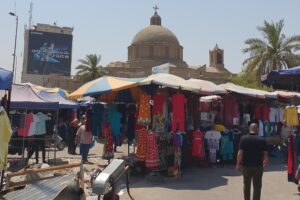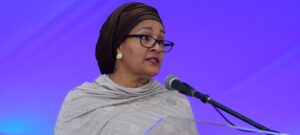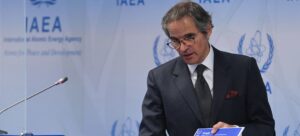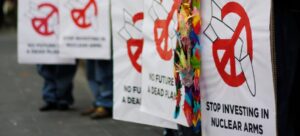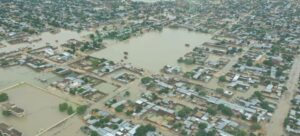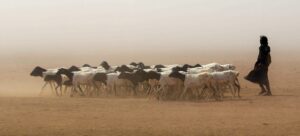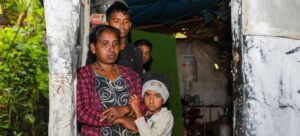Indigenous entrepreneur Celestina Ábalos runs a tourism business in the UNESCO World Heritage site of Quebrada de Humahuaca in Jujuy province, northern Argentina, sharing her community’s culture and knowledge of medicinal herbs.
“I am a child of Pachamama, Mother Earth. Earth is everything to us. It is life. We cannot conceive of ourselves without her. My community dates back 14,000 years. On behalf of 60 families, I led a 20-year fight for the right to land, education and freedom.
We used to live under a rental system where we had a landlord who delineated the spaces for us to occupy and to live in, both for sowing crops and raising cattle. It was a life very much governed by what the master said, by the space you had to occupy, and by what I saw my parents having to pay at the end of each year. These were very powerful moments for a teenager.
Through the process of reclaiming our territory I began to think more about how to make my history and the history of my people known. I have always seen, and I continue to see in the media, the stigma that is placed on us indigenous peoples. I wanted to show and make the other side of the story known. That motivated me but I was thinking: “How do I do it, how do I show this?”

Ivar Velasquez
Indigenous Argentinian tourism entrepreneur Celestina Ábalos with her children.
‘We are the guardians of our culture’
In 2003, our mountain valley, the Quebrada de Humahuaca, was declared a UNESCO World Heritage site. This marked a milestone in the history of our people. I saw that many people were talking about our mountains, our culture, our food. And I said to myself: “but this is us: we know how to do it, we are the guardians of our culture”.
Culture, for us, is part of our daily life, it is the knowledge and skills that have been transmitted from generation to generation. We learn it from the moment we are born. It’s in our medicinal herbs and in our food, in our crops.
So I thought, “Why not dare to do what I know, what I have learned?” That is how my tourism business, a tea house called the Casa de Celestina, was born.

Ivar Velasquez
Indigenous Argentinian tourism entrepreneur Celestina Ábalos with a tourist.
Sharing ancestral knowledge
When tourists come to the Casa de Celestina, I welcome them, I introduce them to the use of medicinal herbs, such as mate, which we drink in the morning and in the afternoon to energize ourselves. I talk about which herb we take when we are sick, when to harvest it, how to dry it, how to preserve them.
I talk about our diet. We have our different corns here and we make our own flour, so we have flour for soup, flour for tamales, flour to make cookies, flour to make our juices, our drinks, flour to make our pastries
All that knowledge is there because it has been transmitted from generation to generation. Our mothers, our grandmothers, for me, are the real treasure troves of biodiversity. Our grandparents are those living libraries in our communities. Without them and without that knowledge, I could not be speaking today.
I have learned, by observing, watching, sharing. You have to be contributing to the land, putting wood on the fire, lighting an oven and making your offering. You have to be there at sunset, when the goats are already back in the corral and the grandparents are sitting down.
The tourists prepare a dish with me. It can be a culli corn flour pudding, with nuts, with chocolate chips. Or they can also prepare a delicious meal, quinoa croquettes stuffed with goats cheese, with sautéed potatoes, rosemary and herbs. Or we can also prepare a llama casserole.
Then we visit my town and our church, which dates back to 1789. We visit the path of herbs, where they also learn about other medicinal herbs such as Muna-Muna, which is for bruises, for muscle pains.
They get to know our stories, our ceremonies, like the dispatch of souls or the story of how we reclaimed our territory. I share what my day is like and what I do. And then we go down and we drink tea together and eat the pudding they have prepared.
I renew their energies with the herbs that we have also brought from the path. They leave feeling renewed, they leave with a different view of us. They experience a living culture, the essence of culture.
That is what I like about tourism, about those who come to visit us. You see how this relationship of culture goes beyond sharing an experience. It is about looking at each other in a different way, to look at each other as human beings.

Ivar Velasquez
Indigenous Argentinian tourism entrepreneur Celestina-Ábalos.
‘I am achieving my dream’
The pandemic hit my business very hard. The reservations I had were cancelled. The little savings I had went to feeding my family. I felt so impotent. The government said that there were subsidies for entrepreneurs, but I did not qualify and had to continue to pay taxes. Many small business entrepreneurs have had a very difficult time. It was very hard.
I was invited to take part in a virtual Start and Improve Your Business (SIYB) course, run by the International Labour Organization (ILO), that was going to take place between October and November 2021. I was very interested in improving my entrepreneurship and developing a business plan because it was one of the reasons why I could not access loans and subsidies. So, I said yes right away.
The ILO course provided me with tools to scale up my business. I am still using them today. They included how to make a business plan, estimate costs, prepare a budget and inventory and manage social media. Some of the people on the course had already started their own businesses, others were about to start. It was a chance to share and exchange our experiences. What I liked the most were the course manuals. They are very, very useful, very good.
My business is steadily improving. I am achieving my dream.
I still remember a speech that I gave a long time ago to Argentina’s then President Néstor Kirchner. I told him: “We, the indigenous peoples, want an opportunity, the opportunity for development, the opportunity to improve our quality of life.”
It is important for my community to see that it is possible, that we women can carry out our businesses with the tools we have. We do not have to wait until we have everything, but we can start with what we have now.”
